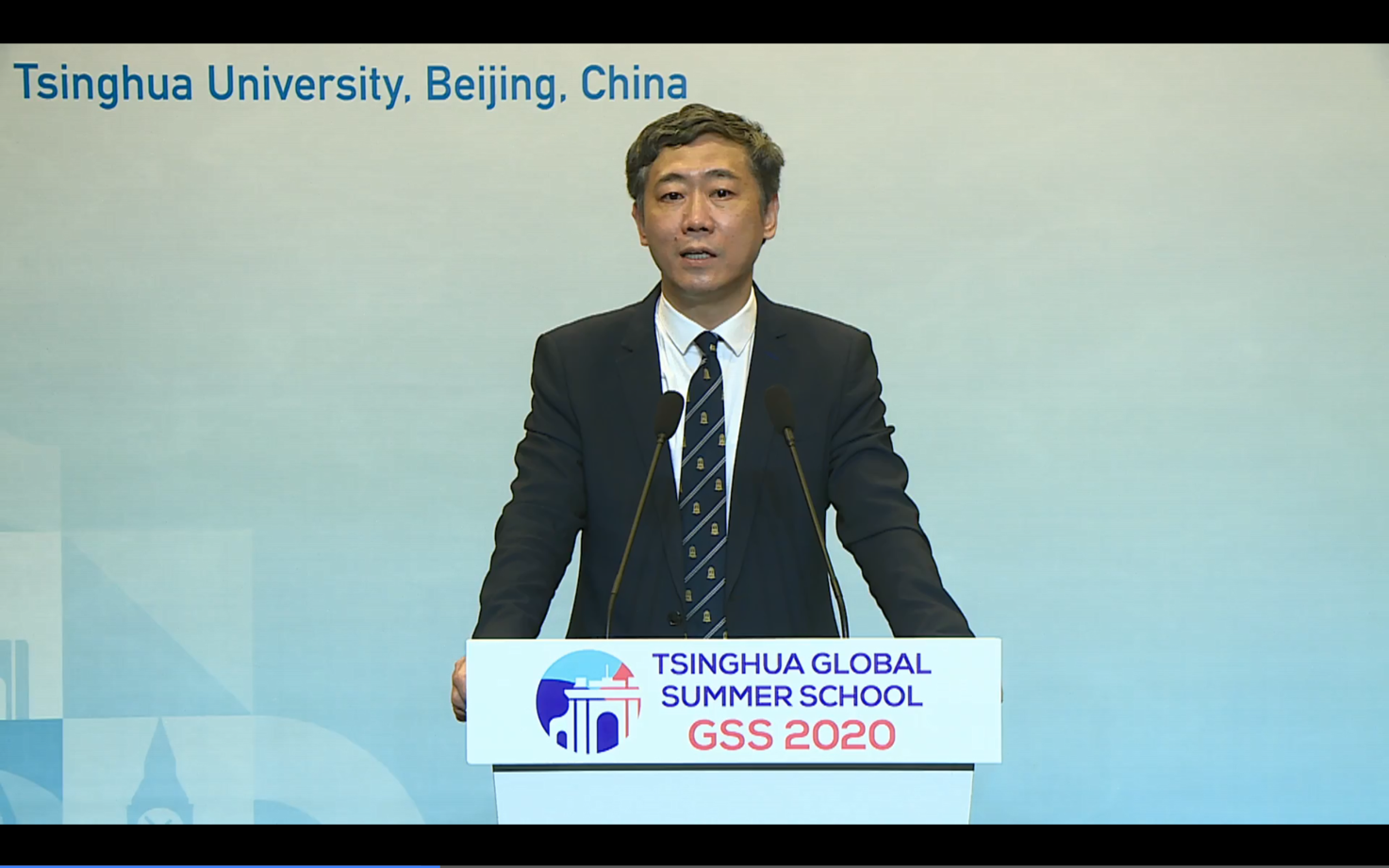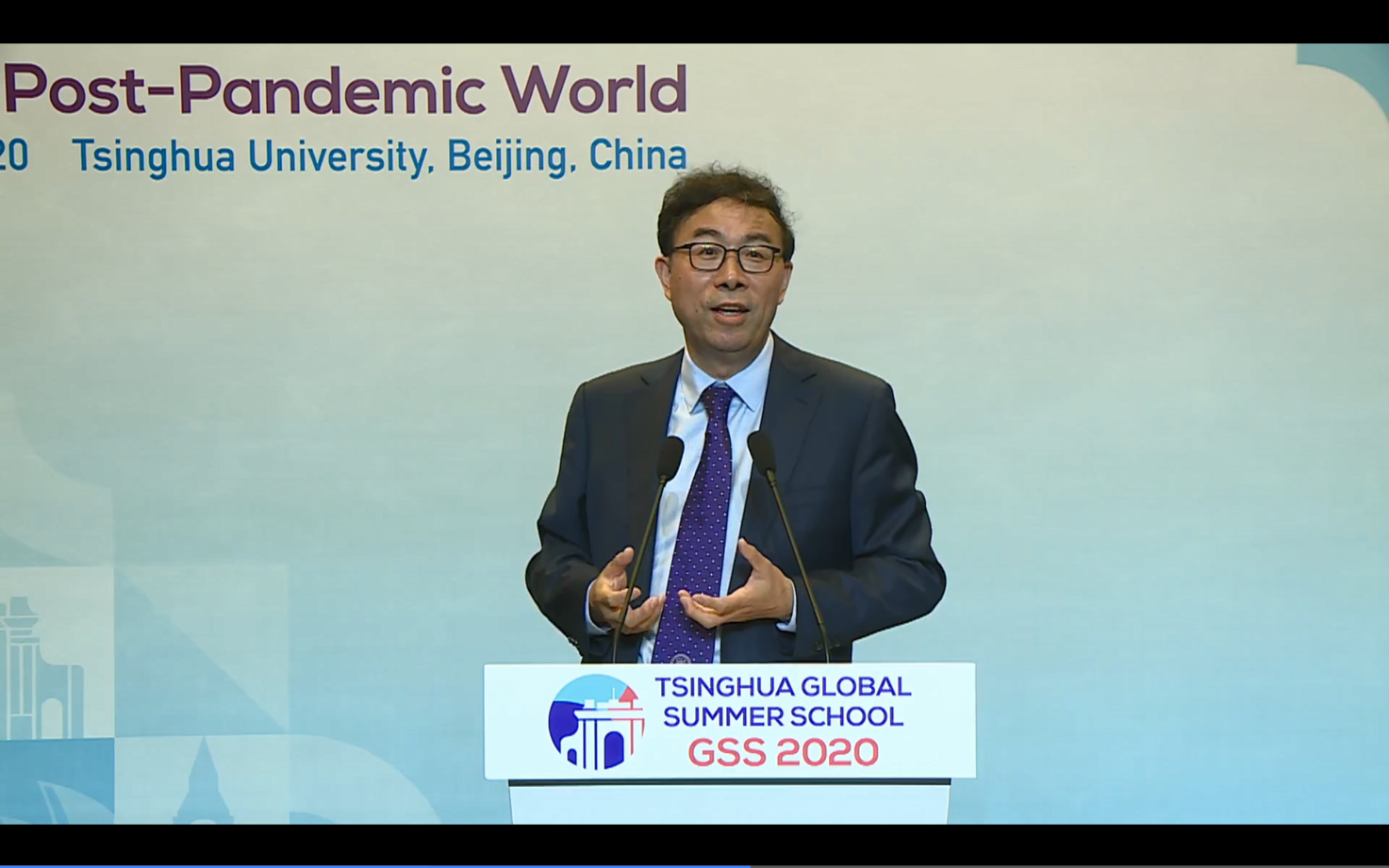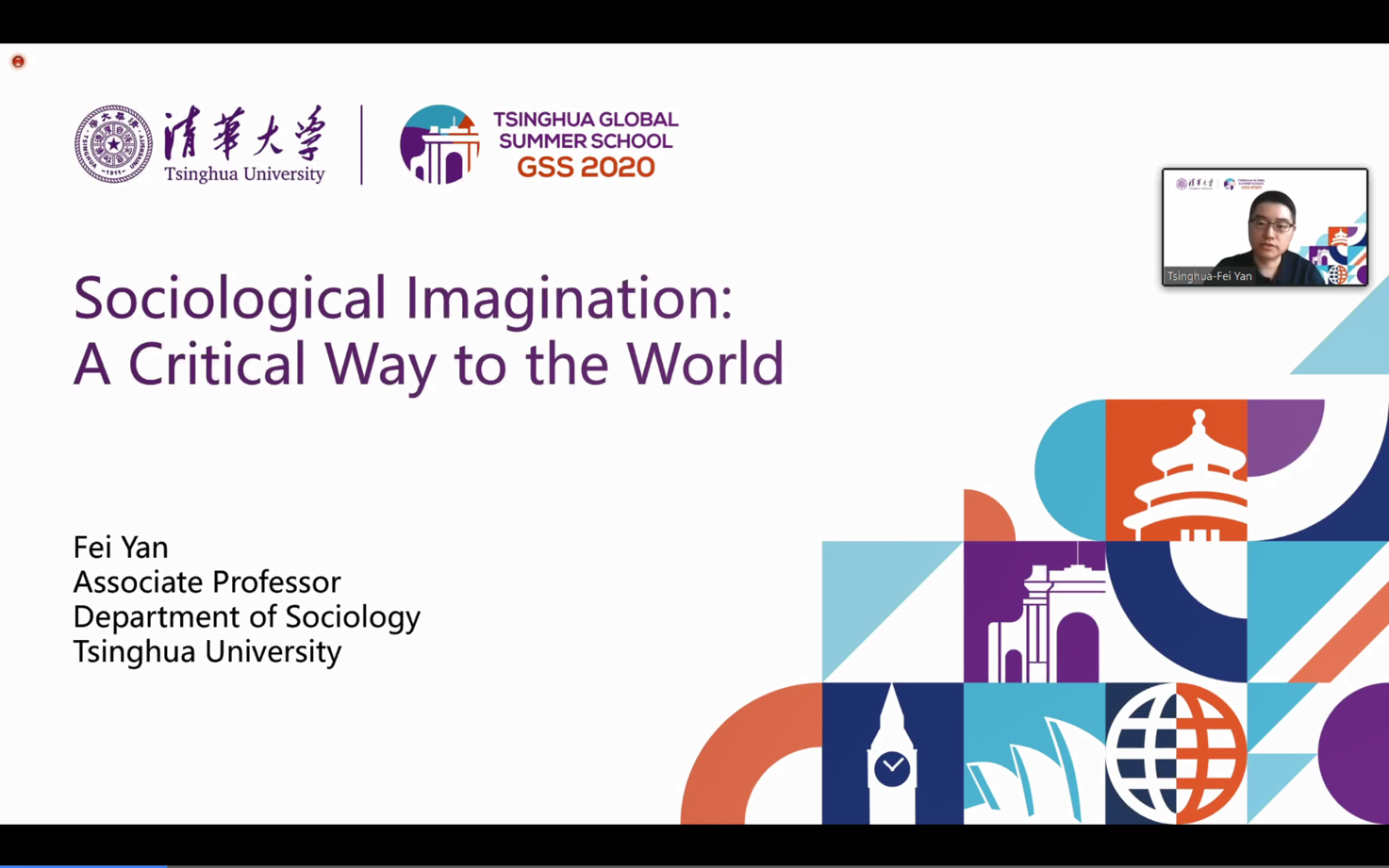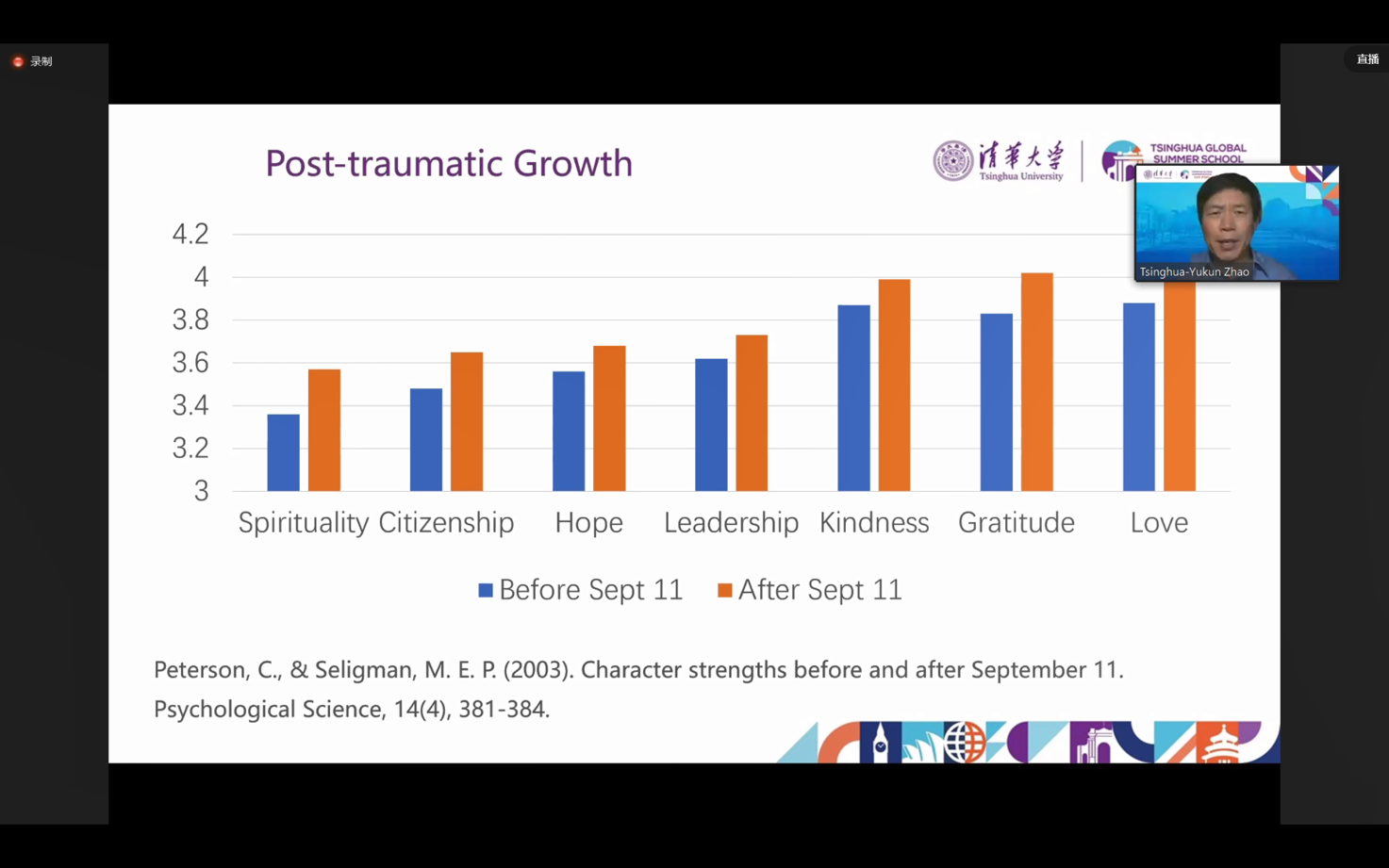On July 25, day 6 of the Tsinghua University Global Summer School (GSS) 2020, themed Society Post-Pandemic, was held by the School of Social Sciences.

Professor Li Daokui, Director of the Academic Center for Chinese Practice and Thinking (ACCEPT) of Tsinghua University, gave a keynote speech entitled China’s World View. Professor Li structured his speech around three simple but fundamental questions: how does China work as a social-economic-political system? what is China’s world view? what are the implications of the rise of China for the West and the rest of the world? China is exploring an approach to modern governance, different from the West, Professor Li explained, and its world view is centered around a non-expansionary home-bound outlook. As for the impact of the rise of China for other countries, Professor Li believed that although both China and the rest of the world need to make mutual adjustments, essentially the rise of China is beneficial for the rest of the world: it implies opportunities for individuals outside China and helps facilitate progressive change in many countries.

Then, moving to the topic of psychology, Professor Peng Kaiping, Dean of the School of Social Sciences of Tsinghua University, gave a keynote speech on Positive Psychology for Optimizing Pandemic Responses. With large-scale behavior changes and significant psychological burdens brought to individuals by the current COVID-19 global health crisis, Professor Peng believed that insights from positive psychology are critical during the time of the pandemic. He shared participants’ research on different dimensions of pandemic responses and also discussed significant psychological assistant work conducted by Chinese psychologists to help relieve stress for medical professionals and members of the public during the pandemic. Professor Peng then gave a few tips on improving mood and well-being for student participants and the general public.

Two workshops were also held during day 6 of the GSS, by Yan Fei, Associate Professor of the Department of Sociology, Tsinghua University. Through theories and examples, Associate Professor Yan created a sociological window for students to view various social issues that our post-pandemic world faces. He believed that society and individuals are inherently connected, both dependent on each other, and that the core of sociology revolves around studying how society affects the individual as well as how the individual affects society. Hence, different societies will take different actions in facing the same challenges. Using the social imagination - the ability to think from an alternative point of view - means being able to think critically and to engage with the complexities of different social contexts. We must respect different cultures and social environments, overcome prejudice, understand our differences and progress together.

Day 6 concluded with a webinar on Post Trauma Growth (PTG) in the post-pandemic world, hosted by Dr. Zhao Yukun at 9:45pm, Beijing time. Dr. Zhao Yukun is the Deputy Director of the Tsinghua Happiness Science and Technology Laboratory. In this webinar, Dr. Yukun Zhao first answered some common questions regarding positive psychology followed by an introduction to the concept of Post Trauma Growth (PTG). Though post-traumatic stress disorder (PTSD) is better-known to the public, PTG is actually experienced by more people after traumatic events. COVID-19 caused higher degrees of depression, anxiety, and maybe even PTSD in some high-risk populations, but positive “post-pandemic growth” is also widely observed. According to psychological research by Dr. Zhao and others, after the pandemic, Chinese people developed higher levels of character strength and sense of meaning, and showed more altruistic tendencies.

Following theoretical explanations, teachers from Renmin University of China and students from Tsinghua University joined the webinar to discuss their views on “post-pandemic growth”. The thoughts they shared inspired the students of GSS 2020 and deepened their understanding of PTG.
The Tsinghua University online Global Summer School (GSS) 2020, entitled “Toward a Post-Pandemic World” is a nine-day journey carried out collaboratively by 17 global academic institutions, including ten different colleges and departments of Tsinghua, five overseas institutions, and two international associations for higher education initiated by Tsinghua. GSS will delve into our post-pandemic world in various disciplines - including economics, education, society, artificial intelligence, climate change, and leadership - and engage with students through lectures, group discussions, and cultural experiential events, integrating the academics with innovation and interaction. GSS strives to break through boundaries, technical limitations and identity constraints to address social issues. The summer school aspires to integrate resources and collaboration inside and outside classes, off and on campus, in China and other countries, and online and offline.
Reporter: Vincent Liu
Photos: Qiu Yinghan, Li Ruyi, He Kang
Editors: Guo Lili, John Olbrich